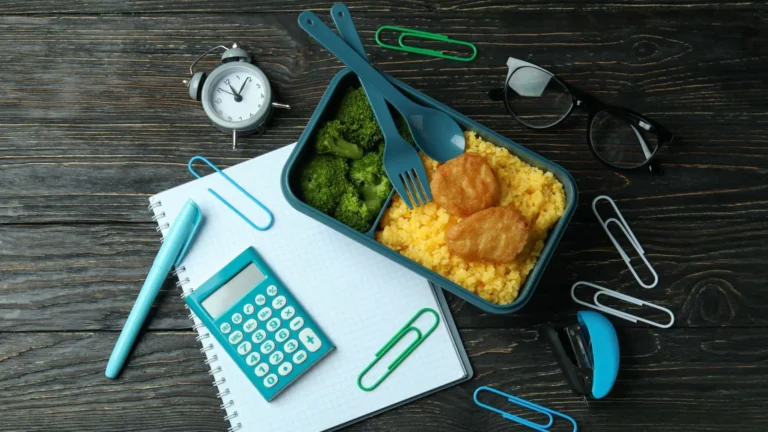Having a college meal plan can be akin to math you never enrolled in. With the dining hall swipes and the flex dollars, it’s hard not to have leftovers you don’t need—and money you didn’t have to spend. What if there’s a way around all that?
Now, picture this: a smaller meal plan, combined with some smart couponing, might save you money and get you healthier to boot. Sounds pretty wonderful, does it not? That’s where Blitz comes in.
With Blitz, you can quickly monitor meal savings and find deals in your area with DealsGPT. Off-campus coupons or dining promotions, Blitz rewards you with the most out of your meal budget. Want to find out how coupons and small plans can save you money? Let’s get started on the meal plan math!
Why a Smaller Meal Plan Can Save You More
A smaller meal plan may seem like a cutback, but it can actually save you money. Many students pay for meal swipes they never use. Consider this: you only consume so many meals on campus, correct? Let’s discuss why a smaller meal plan is often a better option.
How Meal Plans Are Structured
Most college campuses offer various meal plan options to fit different student lifestyles. These plans usually include:
- All-You-Can-Eat Plans: Unlimited access to dining halls and often the most expensive.
- Meal Swipes: A fixed number of meals for the dining hall each week.
- Dining Dollars/Flex Points: Money loaded onto your student ID for on-campus eateries.
These plans seem convenient, especially the unlimited ones. However, many give you more food than you actually need. If you’re not a big eater or don’t always dine on campus, you pay for meals you won’t use.
Reducing Wastage by Choosing a Smaller Plan
Opting for a smaller plan eliminates paying for unused meals. A good example is a student who requires only breakfast and lunch; they can save money by choosing fewer swipes. By personalizing your meal plan, you minimize waste from larger, all-inclusive plans.
Tools like Blitz’s BudgetGPT help you track expenses and meal usage. This way, you maximize your plan without overspending.
How Coupons and Discounts Boost Meal Savings
Coupons and discounts can significantly save you money on food, particularly if you are a student who is financially tight. Here’s how they can increase your savings:
Where to Find Meal Plan Coupons and Discounts
A meal plan that is smaller in size can be a wise decision. How about we see in what way more money can be saved by using more coupons? Here are some excellent places to find meal discounts:
- UNiDAYS: Find student discounts for food delivery services like Grubhub and DoorDash.
- Local Restaurant Deals: Look for student discounts at nearby cafés, coffee shops, and eateries.
Combining these discounts with your meal plan can go a long way in stretching your food budget.
Combining Coupons with Your Meal Plan
How can you use these discounts with your smaller meal plan? It’s all about smartly combining coupons where your plan falls short. Here’s how:
- Grocery Store Discounts: Eat meals in the dining hall using your meal plan. Cut costs on snacks or easy meals using store discounts. This way, you reserve your swipes for campus meals.
- Campus Café & Coffee Shop Discounts: Don’t forget student coupons at neighborhood coffee shops or cafes. You can save considerable sums and remain convenient.
If coupons are combined with a smaller meal plan, then it can substantially reduce your costs while at the same time, give you the meals you want.
Read: Affordable Meal Prep Ideas for Students: Save Time and Money
When to Choose a Smaller Plan vs. A Bigger Plan
Deciding on the most appropriate meal plan can be quite a challenge—small or large? Here is what you can do:
Assessing Your Eating Habits
Before deciding, analyze your eating habits. Do you mostly eat on campus or snack between your classes? A smaller plan would be more suitable if you are a person who likes to have snacks or light meals.
For instance, if you typically have breakfast and lunch on campus but snack all day, a larger plan may be too much. A smaller plan can save you money while covering the meals you truly want.
How Your Schedule Impacts Your Meal Plan Needs
Your class schedule greatly affects how often you need a full meal. If you spend a lot of time on campus, a bigger plan can fit your hectic days. However, if your days are not as busy or you prefer eating off campus, a smaller plan will do.
Leveraging Meal Plan Swaps and Flex Dollars
Flexibility in meal plans is essential to saving money. Let’s explore how to get the most value from your plan with swaps and flex dollars.
Swapping Swipes for Extra Food Credits
Many colleges let students swap unused meal swipes for flex dollars or other credits. These can be spent at restaurants or grocery stores in your neighborhood.
For instance, if you are in the habit of taking breakfast and lunch on campus but during the day you only take snacks, then a larger plan would be way more than enough for you. Not only will a smaller plan cover the meals you want, but it will also save you money.
Using Flex Dollars for Non-Meal Items
Flex dollars aren’t only for meals, but also for snacks, beverages, or even commodities such as smoothies and coffee can be purchased with them. By conserving meal swipes for entire meals, you can utilize flex dollars at nearby cafés or convenience stores for those niceties you crave in between meals.
How to Maximize Meal Savings Using Coupons and Apps
Make the most of your meal plan by applying coupons and app savings for your purchases. From campus-specific coupons to cashback rewards, here’s how to optimize every meal buy. Here is how you can maximize your savings:
Top Apps for Finding Meal Plan Discounts
EatStreet, Grubhub, and DoorDash offer exclusive student discounts on ordering food. These discounts help you spend more while off-campus. You can use these discounts in addition to your meal plan, and then use swipes only when unavoidable. Further, be aware of campus-based apps that can give you discounts on nearby food options near your college.
How Blitz Helps You Track Dining Discounts
Blitz not only helps with budgeting, but it also makes finding dining discounts easy. DealsGPT pulls up relevant discounts in your area, so you never miss a chance to save. Plus, Blitz’s Quick Cash gives you cashback on meal purchases, helping you adjust your budget as needed.
Common Mistakes Students Make with Meal Plans
Most students encounter issues with selecting and utilizing meal plans due to common oversights. Knowing these oversights can prevent wasted cash and lost savings.
Overbuying and Underusing Meal Plans
One of the most common mistakes that the majority of students commit is purchasing a meal plan that is too large. They end up with unused swipes and lost cash. A smaller, customized meal plan, along with coupons, can prevent such mistakes.
Ignoring Off-Campus Meal Discounts
Another mistake is missing lower-cost, healthier, or tastier options off-campus. Local restaurant discounts can help you eat more cheaply and enjoy greater variety without just relying on your meal plan.
Blitz simplifies finding these local discounts, and with Quick Cash, you’ll never be short of funds for your off-campus eating requirements.
How Blitz Can Help You Choose the Right Meal Plan
Blitz makes it easy by offering tracking tools for spending and locating good bargains. It assists students in choosing their lifestyle-suited meal plans without overspending and wasting meals. Here’s how it helps:
Track Your Meal Spending and Find the Best Deals
Blitz’s BudgetGPT simplifies tracking meal expenditure. With it, you can stay within budget and have a customized meal plan according to your routines. Blitz also notifies you of new offers, discounts, and cashback deals so that you never miss a saving opportunity.
Use Blitz’s Quick Cash for Meal Plan Adjustments
With Blitz’s Quick Cash option, students have the flexibility to switch their meal plan halfway through the semester. Do you need to eat more or less? Quick Cash helps make changes rapidly, so you don’t overpay.
FAQs About Meal Plan Math and Coupon Stacking
Can I use coupons with my meal plan?
Yes! Many colleges let you use coupons for dining services, takeout, or local restaurants. Check with campus dining services. Apps like Blitz can help you find discounts that fit your plan.
How can I find meal plan discounts for my college?
You can locate discounts from campus apps, websites, and local business relationships. Blitz’s DealsGPT provides the most recent dining deals and savings in your area.
Should I get a bigger meal plan if I live on campus?
Not necessarily! Consider your food preferences and class schedule. If you prefer off-campus eating or lighter meals, a smaller plan with discounts may pay off. Blitz can assist you in making your decision.
How do I know when a coupon is the best deal for me?
The ideal coupon is the one that suits your eating lifestyle. Seek coupons based on your requirements, whether for dining halls or neighbourhood restaurants. Blitz’s DealsGPT directs you to the most suitable offers.
How can Blitz help me save on my meal plan?
Blitz monitors how much money you’re spending, discovers discounts with DealsGPT, and assists you in modifying your budget with Quick Cash. You’ll save money with tailored deals and budgeting features for students.
Conclusion – Make Smarter Meal Plan Decisions
Choosing a smaller meal plan and using coupons and discounts can transform your college budget. You’ll enjoy flexibility, reduce waste, and still access great meals without overspending.
With Blitz, tracking your meal plan savings is simple. DealsGPT assists you in locating the best dining bargains and discount offers in the area, while Quick Cash lets you modify your meal plan on short notice.
Ready to save even more on meals? Discover Blitz’s Deals section for special student discounts and budgeting resources!





